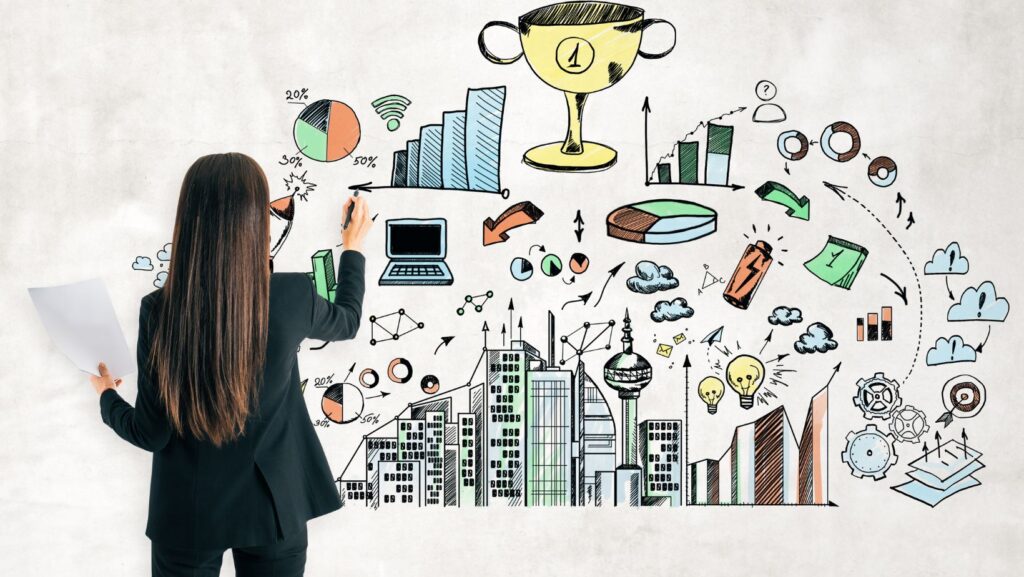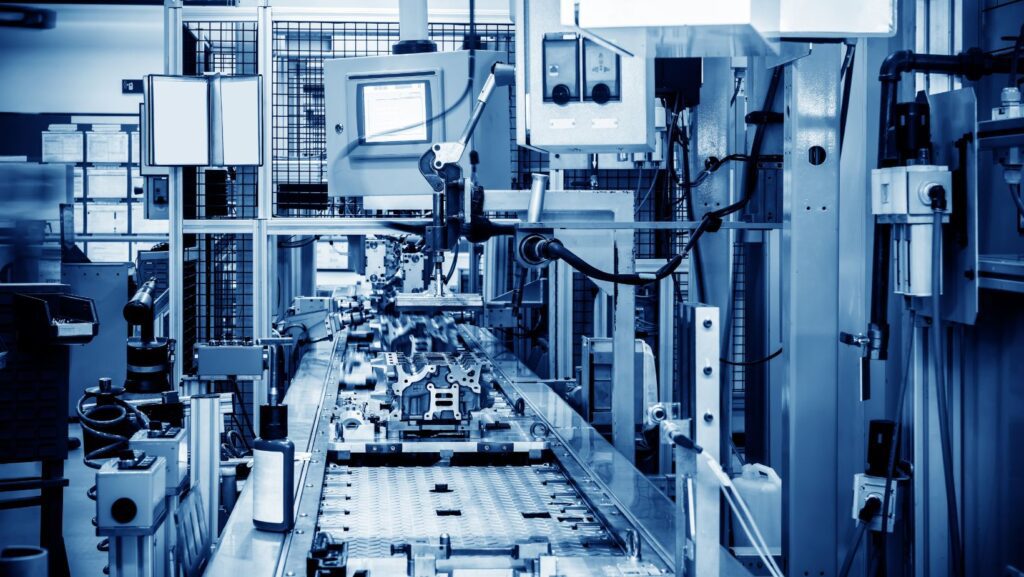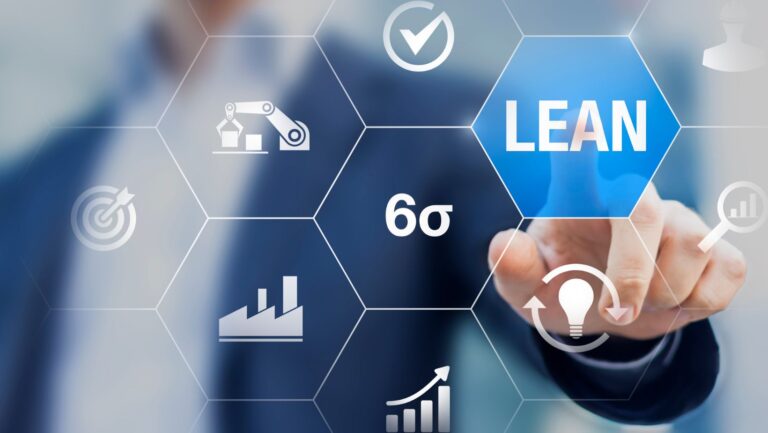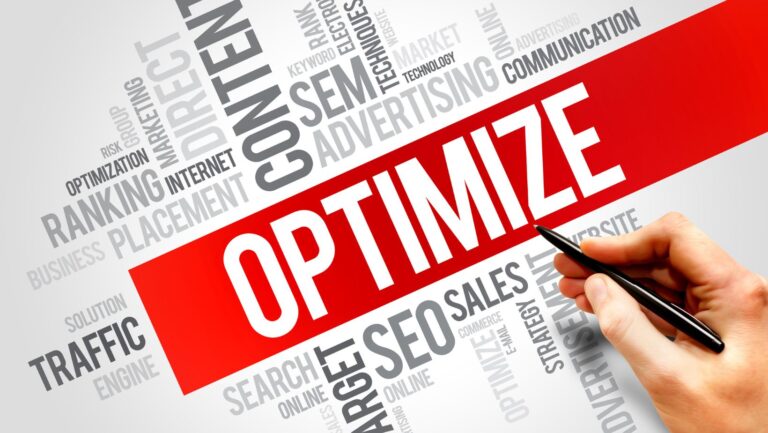What is Production: Defining the Process and Economic Importance

What is Production
Production is the process of transforming unfinished commodities or components into useful goods and services that satisfy consumer demands and improve the economy. It is essential for promoting prosperity and economic growth.
The ability of industry to produce goods that meet consumer desires is what gives it economic relevance.
The total economy expands and becomes more prosperous as the output of products and services rises.
Producers in the Economy
Resources, both physical and intangible, are both considered production inputs. Raw resources are considered material inputs, while production plans, technical knowledge, and intellectual property are considered immaterial inputs.
Producers use these inputs to create goods that appeal to customer tastes.
The practice of outsourcing has become common in modern industry.
Companies can focus on product creation, marketing, and sales while lowering production costs by outsourcing manufacturing operations to third-party providers.
Varied Production Examples

Outsourced Production
Example: A high-end electronics company designs its products in-house but entrusts the manufacturing process to specialized facilities in different countries. This approach enables the company to focus on innovation and marketing efforts while mitigating production expenses.
Example: A start-up fashion brand creates unique apparel designs and collaborates with a reputable production company to manufacture and distribute the final products, allowing the brand to concentrate on creativity and promotion.
Batch Production
Example: A small-scale confectionery company produces limited quantities of artisan chocolates, ensuring greater control over quality and enabling the exploration of new flavors and techniques.
Mass Production
Example: A multinational automobile manufacturer leverages assembly lines to produce thousands of vehicles each day, optimizing efficiency and lowering production costs.
Household Production
Example: The PaperStreet Company produces homemade soaps using natural ingredients and sells them at local farmers’ markets, providing a sustainable and eco-friendly alternative to mass-produced products.
Product Economics
Meeting consumer requirements and creating revenue, production helps the economy. A growth in GDP results from improved production market efficiency.
The competitiveness of a product is significantly influenced by the price-to-quality ratio. Producing better products at more competitive prices is the outcome of producers increasing this ratio and forcing rivals to do the same.
Factors Influencing Production

The output as a whole can be impacted by a variety of elements in the production process. Accessibility of labor, capital, and raw resources is a key factor in influencing the effectiveness and size of production.
Limited resources may limit production potential, which has an impact on output quantity and quality.
On the other side, technological improvements present potential to enhance production processes by boosting productivity, cutting costs, and improving product quality.
Businesses must use innovative technologies to stay ahead of the competition and meet changing consumer demands in today’s market.
Government policies, such as rules, taxes, and incentives, can affect both individual production choices and an economy’s overall capacity for output.
Restrictive laws may impede production and discourage economic advancement, whereas policies that encourage growth and innovation can result in higher output levels and economic prosperity.
Another important element that affects production plans and output levels is market demand. To adapt to shifting consumer tastes and preserve market competitiveness, production processes may need to be changed as a result of fluctuating consumer demand.
Types of Production Systems

Depending on the products’ nature, size, and unique customer requirements, different production systems are used. In order to serve specialized or niche markets, job manufacturing focuses on developing custom or distinctive products based on specific customer requirements.
Since each product is customized to meet the needs of a specific customer, this type of production system is frequently linked to craftsmanship and high-quality results.
Flow production, usually referred to as continuous production, entails the mass creation of standardized goods through an efficient, nonstop procedure.
This method of production is typical in sectors like manufacturing autos, consumer electronics, and food processing when large quantities of identical items are needed.
Economies of scale help flow production, which lowers production costs and boosts productivity.
A system known as just-in-time (JIT) production places a strong emphasis on producing things just when they are required, lowering inventory costs, and cutting waste.
In order to ensure that raw materials and finished commodities are accessible at the appropriate time and in the appropriate amounts, this strategy necessitates perfect coordination between production and supply chain operations.
Environmental Impact of Production

The industrial process can have a big impact on the environment, especially when resources are used inefficiently or unsustainable ways.
Depletion of resources, pollution, and trash creation are frequent by-products of production processes. Pollution and trash can impair the environment and human health, while unsustainable activities can result in the depletion of natural resources.
Businesses must embrace sustainable production techniques, such as employing renewable resources, reducing waste, and using energy-efficient technologies, in order to reduce the environmental impact of production.
Companies can support environmental protection while improving their reputation and long-term profitability by adopting sustainable practices.
Final Thoughts
Converting inputs into worthwhile outputs through a variety of production systems, manufacturing is an essential process that promotes economic progress and meets human needs.
The availability of resources, technology, governmental regulations, and market demand are only a few of the variables that have an impact on production choices and results.
Making decisions that support sustainable growth and development can be made easier by firms, policymakers, and consumers when they are aware of the economic ramifications, various production systems, and environmental effects of production.
Businesses must modify their production plans and procedures to stay competitive as the global economy continues to change.
FAQ
Q1: What is production?
A: Production refers to the process of converting raw materials or components into valuable goods and services that meet human needs and propel economic advancement.
Q: Why is production important in economics?
A: Production plays a vital role in fostering economic growth and prosperity by creating products that cater to consumer demands, leading to overall economic expansion and increased prosperity.
Q: What are the different types of production systems?
A: The main types of production systems include job production (custom or unique products based on individual customer specifications), flow production (large-scale manufacturing of standardized products), and Just-In-Time (JIT) production (producing goods exactly when they are needed).
Q: What factors influence production?
A: Factors influencing production include resource availability (raw materials, labor, and capital), technological advancements, government policies (regulations, taxes, and incentives), and market demand.
Q: How does production impact the environment?
A: Production can have significant environmental consequences, including resource depletion, pollution, and waste generation. Unsustainable practices can lead to exhaustion of natural resources and harm to the environment and public health.
Q: What are some ways to mitigate the environmental impact of production?
A: Businesses can adopt sustainable production practices, such as using renewable resources, minimizing waste, and implementing energy-efficient technologies, to mitigate the environmental impact of production.
Q: How do production decisions and outcomes affect businesses, policymakers, and consumers?
A: Understanding the economic implications, diverse production systems, and the environmental impact of production can help businesses, policymakers, and consumers make informed decisions that promote sustainable growth and development.
Bio:

Ronnie Patterson
Ronnie Patterson, founder of MagnÜron, is a multifaceted entrepreneur with a diverse background in music, electronics engineering, and engineering management. Drawing on experience across various industries, He offers expertise in SEO, operations, and strategy to help businesses thrive. Possessing a unique perspective and unwavering commitment to collaboration, and ideal partner for growth and success.






